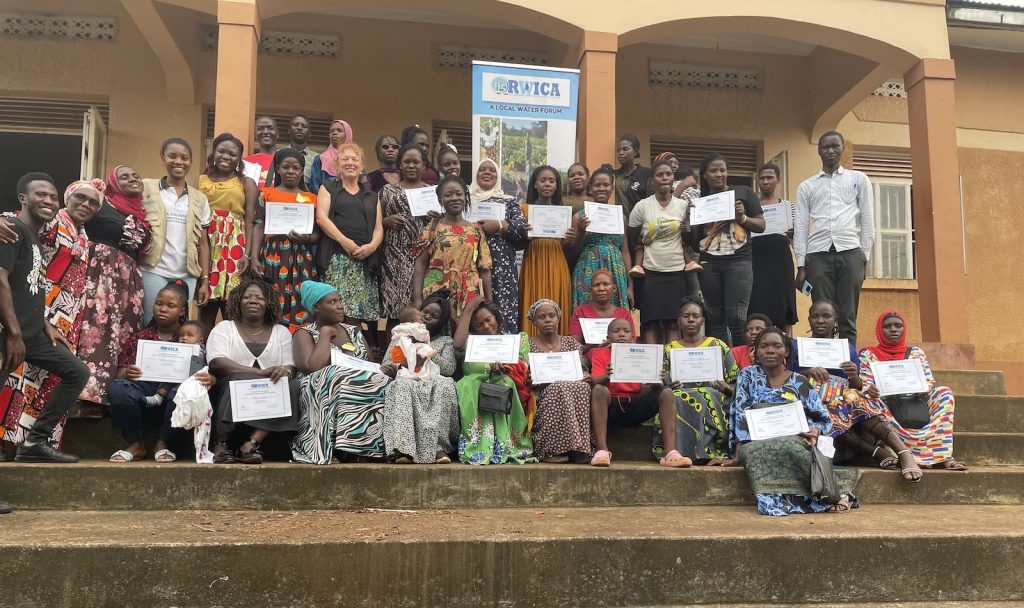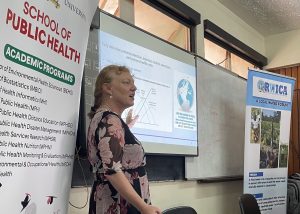An alum of HSPop’s Community-Oriented Public Health Practice MPH program has partnered to create the Rural Water Initiative for Climate Action to address the issue of clean, safe water in rural Uganda.

A need for safe water access
Laura C. Streichert (COPHP MPH ‘05) has led global health initiatives for decades and remembers the precise moment she met Aisha during a public health webinar. Aisha, who’s from Uganda, described how waterborne illness has impacted her life, from missed school to hefty medical bills. Aisha and Laura decided to start a nonprofit to address the critical issue of safe water in rural Uganda, and the Rural Water Initiative for Climate Action (RWICA) was born.

In just four years, RWICA has planted 15,000 trees to restore degraded watersheds, built health literacy through Water Education Days, and held training events to provide practical skills for starting businesses. RWICA has installed rainwater harvesting tanks, including at a maternal health center, leading to reduced HIV transmission from mothers to newborns.
A few months ago, Streichert traveled to Uganda to witness RWICA’s impact firsthand and give a talk entitled “The Case for a One Health Social Science Approach to Advance Health Security and Improve Gender Equity” at Makerere University to a full house.
What is RWICA?

RWICA is founded on the idea of One Health, which Streichert described as a “growing concept of pursuing solutions to complex problems by considering the interconnectedness between animal, human, and environmental health.” She has advocated for One Health in numerous ways, from publishing peer-reviewed papers in top global health journals to volunteering with the Peace Corps and Newton Medical Reserve Corps. The COPHP program grounded her in the practice of designing health interventions with both environment and culture in mind.
One of RWICA’s overarching goals is to combat gender inequality. In rural Uganda, many women are forced to traverse long distances for water, including to remote and isolated areas where they face a higher risk of physical and sexual violence. Often, children miss school to help their families by fetching water. The solution isn’t only clean water, but also sustainable alternatives for these women.
“It’s always about working with the women and giving them voice. Each event is like, ‘Okay, how are we giving them knowledge? How are we giving them skills? How are we giving them earning potential?’” Streichert says.
Increasing health literacy
RWICA’s Water Education Day workshop has taught Ugandans about waterborne illnesses and how to identify contaminated water. RWICA has also held classes where more than 30 women learned how to make and market soap and other hygiene products. Now, some of these women have started businesses selling their products to schools around Uganda. At the Waste to Wealth workshop, participants even turned plastic water bottles into new products.
In mentoring and working with young Ugandans like Aisha, Streichert has fostered global partnerships for water equity.
“I feel one of the accomplishments of RWICA is that it’s trained One Health champions to do work with a population health perspective,” Streichert reflects. “That’s one of my best legacies.”